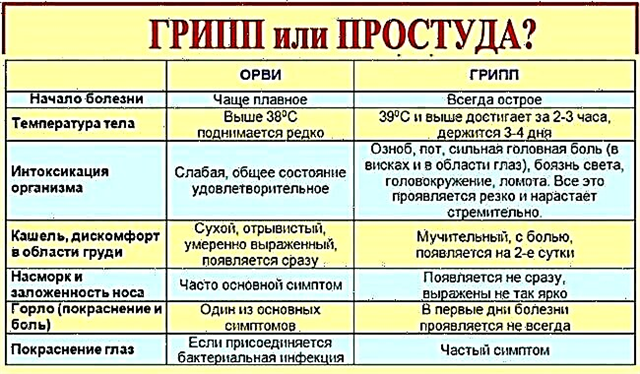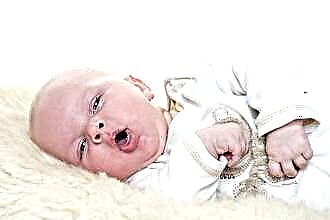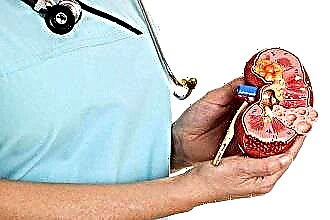Angina is one of the most formidable infectious diseases characterized by severe systemic complications. Recurrent inflammation of the mucous membrane of the throat can cause the development of rheumatism, myocarditis, glomerulonephritis, etc. For this reason, it is impossible to neglect conservative therapy with the use of antibacterial drugs. Alternative medicine is used only as an adjunct to a medication regimen. To eliminate the unpleasant symptoms of ENT disease in a child, it is advisable to use preparations based on medicinal herbs, honey and vegetables that have immunostimulating, antiphlogistic and decongestant effects.
Home Treatment Criteria
 How to properly treat an infectious-allergic inflammation in the throat? First of all, you need to seek help from a specialist. The attending physician will prescribe a course of drug therapy, which will include antimicrobial, local anesthetic, antiphlogistic and antipyretic drugs.
How to properly treat an infectious-allergic inflammation in the throat? First of all, you need to seek help from a specialist. The attending physician will prescribe a course of drug therapy, which will include antimicrobial, local anesthetic, antiphlogistic and antipyretic drugs.
The specificity of the disease lies in the strong intoxication of the body, which creates a great burden on the cardiovascular, respiratory and excretory systems. To prevent the emergence of post-infectious complications in a child, you should:
- observe bed rest - prevents the creation of large loads on a weakened child's body;
- ventilate the room - promotes the flow of oxygen-enriched air into the affected tissues;
- provide an abundant drink - accelerates the process of removing toxic substances from the body with sweat secretions;
- adhere to diet therapy - prevents mechanical damage to the hyperemic mucous membrane by solid food particles;
- perform sanitizing procedures - cleanse the oropharynx from pathogens, which speeds up the healing process of tissues.
The use of diaphoretic drinks in the treatment of children under 1 year old contributes to dehydration and increased intoxication of the body.
Rinses
Gargling is one of the most effective therapeutic procedures for mechanical cleansing of the mucous membrane of the oropharynx from pathogens. Treatment of the affected tissues with folk remedies accelerates the regression of catarrhal processes, which is due to the antiseptic and anti-inflammatory effect of the solutions used. Regular sanitation procedures stimulate the evacuation of purulent plugs from the lacunae of the palatine tonsils, which speeds up the child's recovery process.

Below are the most effective folk remedies for angina in children, which can be used at the stage of acute sore throat:
- soda solution: dissolve 1 tsp. baking soda in 250 ml of boiled (warm) water, adding 2-3 drops of iodine to the liquid; gargle at least 4 times a day for 7 days;
- sage broth: pour 1 tbsp. dried herbs 300 ml of boiling water and boil for 3 minutes; gargle with strained broth 5 times a day;
- solution with propolis tincture: amuse 1 tbsp. 10% propolis tincture in 300 ml of water; gargle with a ready-made product no more than 3 times a day.
Important! Gargles can be used to treat children aged 3-4 years.
Purulent sore throat occurs when the mucous membrane of the oropharynx is affected by pathogenic bacteria. To cure the pathology, calendula-based decoctions must be used to sanitize the throat. The plant contains carotenoids, flavonoids and other components that have a pronounced antiseptic effect. Irrigation of hyperemic tonsils with a medicinal solution will contribute to the destruction of bacteria and detoxification of the body.
Therapeutic inhalations
 Inhalation is an effective way of administering medications directly to the inflammatory foci in the form of water vapor or aerosol. It should be noted right away that it is dangerous to use steam inhalation when treating a child under 2 years of age.
Inhalation is an effective way of administering medications directly to the inflammatory foci in the form of water vapor or aerosol. It should be noted right away that it is dangerous to use steam inhalation when treating a child under 2 years of age.
Inhalation of hot steam can cause burns and swelling of the mucous membranes. Treatment of angina in young children is carried out using nebulizers that convert medicinal solutions into an aerosol at room temperature. Herbal decoctions can be used as preparations for inhalation.
Their components inhibit the activity of pathogens, normalize the microflora and the pH level in the mucous membrane, which helps to increase local immunity. What folk remedies for angina for children can be used for inhalation?
- onion: chop 1 onion and pour ½ liter of boiling water over it; after 1 hour, strain the broth by adding 1-2 drops of eucalyptus essential oil;
- collecting herbs: mix 1 teaspoon each of thyme, chamomile and oregano, then pour the herbs with ½ liter of water; after 5 minutes of boiling, strain the broth with gauze;
- soda: 2 tbsp. Dissolve soda in 1 liter of hot water; cool the liquid to 37-38 degrees before use.
In order to avoid the occurrence of laryngospasm, it is not recommended to carry out inhalation with a nebulizer for children under the age of 6-7 months.
To achieve the desired results in the treatment of ENT disease, inhalations must be performed for 5-7 minutes at least 3 times a day. If the child has an allergic reaction to the components of medicinal solutions, use a traditional drug for the procedure - "Kromohexal", "Miramistin", "Chlorophyllipt" or "Fluimucil".
Means for oral administration
How to treat angina at the stage of acute inflammation? Oral administration of immunostimulating and decongestant drugs helps to alleviate the symptoms of the disease. Detoxification of the body is carried out using solutions based on bee products (honey, propolis), milk, onions, etc. The composition of the products includes vitamins, amino acids and trace elements that accelerate cellular metabolism, which contributes to the neutralization and removal of toxic substances from tissues.
Non-drug treatment of angina in children involves the use of the following funds  for oral administration:
for oral administration:
- milk with honey: dissolve 1 tsp of flower honey in 200 ml of milk; it is advisable to drink the drink before bedtime and 20 minutes before meals 3 times a day;
- carrot juice: add 1 clove of minced garlic to 1 glass of carrot juice; give your child no more than 2 glasses of juice a day, 30 minutes before meals;
- onion with honey: mix 1 teaspoon of onion juice and honey, then dissolve the mixture in 100 ml of warm water; drink 50 ml of the drink 3-4 times a day after meals.
Important! Do not give dairy products to children if they are lactose deficient or allergic to casein.
Natural antipyretics
Tonsillitis is characterized by a strong increase in temperature at the stage of acute inflammation of the throat mucosa. To eliminate subfebrile fever, you can use folk remedies for tonsillitis. Unlike synthetic drugs, they do not provoke side effects, therefore they can be used to treat ENT diseases in preschool children.
The following are often used as antipyretics:
- raspberries: 2 tbsp pour 500 ml of boiling water over dried twigs and leave for 3 hours; give the child 50 ml of infusion 3 times a day;
- cranberries: mash fresh berries with sugar in a 1: 1 ratio; consume 1 teaspoon of syrup 5-6 times a day 20 minutes before meals;
- scarlet: grind 300 g of plant leaves, then fill them with 300 ml of wine and 6 tbsp. melted honey; apply 1 tbsp. funds 30 minutes before meals.

Almost every folk remedy has contraindications for use.Therefore, before using medicinal decoctions and solutions, it is advisable to consult with your doctor. In particular, antipyretics that contain alcohol should not be used when taking antibacterial drugs.
What is prohibited?
Angina is a disease characterized by the rapid progression of pathogenic flora. Delayed relief of inflammation can lead to generalization of pathological processes and the development of severe systemic complications. That is why angina in children should be treated under the supervision of a pediatrician, taking into account all the features of drug therapy.
There is a list of unacceptable manipulations that cannot be performed during the treatment of the disease:
- active games of the child - acceleration of blood circulation contributes to the hematogenous spread of infection and the formation of new foci of inflammation;
- refusal of conservative treatment - increases the risk of developing severe complications due to the unhindered multiplication of bacterial flora in the ENT organs;
- citrus abuse - contributes to the aggravation of allergic reactions, which is fraught with even greater inflammation of the lymphadenoid formations;
- walks during the period of acute inflammation - lead to hypothermia and a decrease in local immunity.
Using folk remedies for angina in children, one must not forget about the full course of drug therapy. Even with an obvious regression of inflammatory processes, the risk of complications persists for 3-4 weeks.



